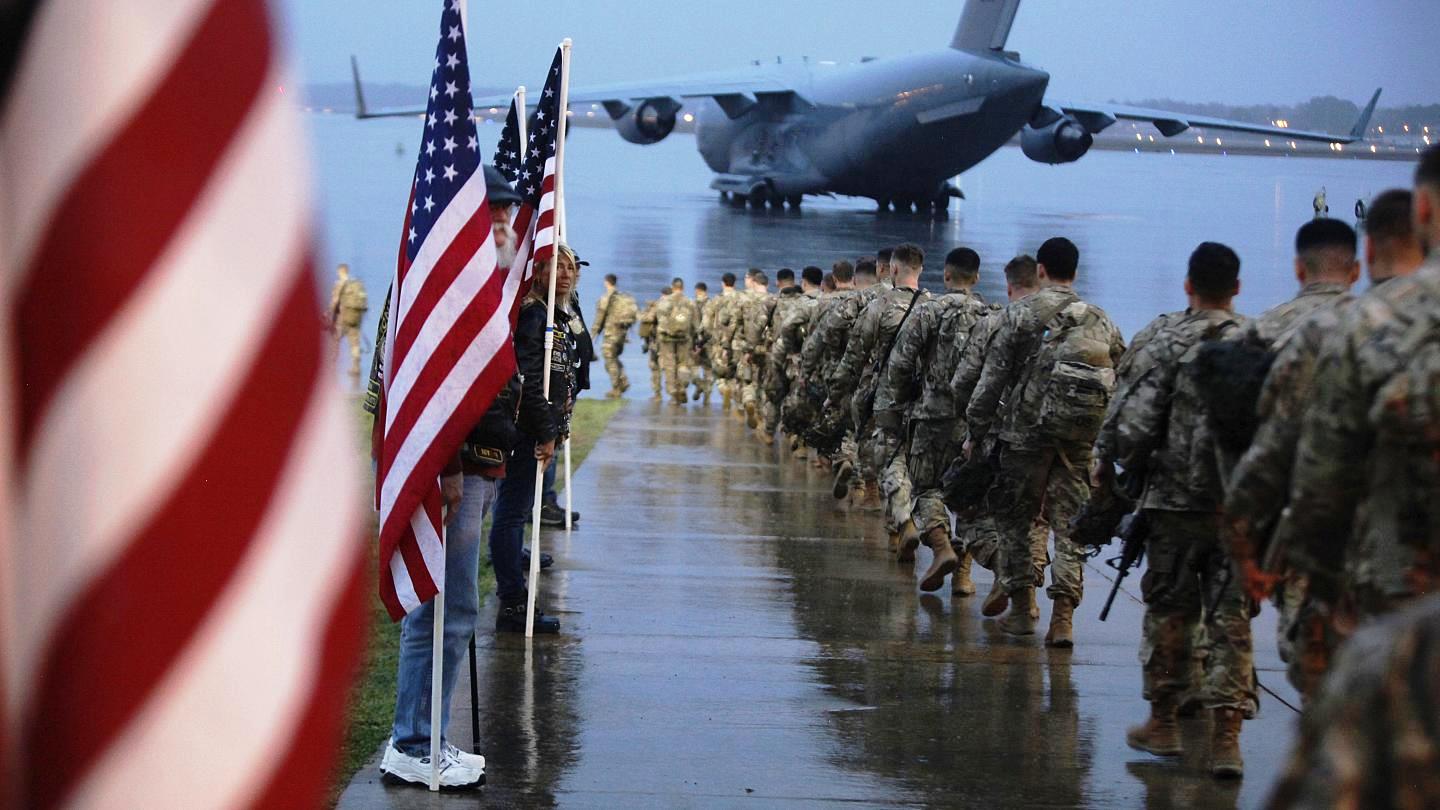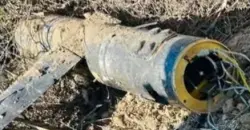Iraq pressing US to agree on troop withdrawal timetable as tensions escalate

Shafaq News/ Though Washington has promised its forces are leaving, the lack of defined deadlines has opened the door for further attacks by armed factions
Iraq’s government is trying to accelerate the process that lays out timetables for the withdrawal of US-led coalition troops, in an attempt to pull the rug from under Iran-backed paramilitaries and secure some modicum of calm before October’s parliamentary elections.
For Prime Minister Mustafa al-Kadhimi, an end to the relentless attacks on US targets in Iraq cannot come soon enough.
Wednesday night saw the latest attack on US forces, as a drone dropped explosives on a base hosting American troops, resulting in no reported casualties but stirring tumult nonetheless.
The attacks, predominantly claimed by previously unknown Iraqi armed factions but widely believed to be carried out by powerful Iran-backed paramilitaries, are accompanied by demands US troops leave Iraq.
Last week, Iraq and the United States moved a step closer to that eventuality, announcing their agreement to withdraw US-led coalition forces according to timetables determined by joint technical military committees.
The Wednesday statement followed a third round of strategic dialogue between the two parties, and included an agreement to change the nature of the anti-Islamic State coalition’s mission from combat to advisory and training.
By setting time limits for the withdrawal and having Washington publicly commit to abiding by them would relieve the huge pressure on Kadhimi’s government, giving him room to manoeuvre until a new parliament and government is sworn in.
Moves to speed up the process are beginning. Days before the Erbil attack, Kadhimi announced the formation of a technical military committee headed by the Army Chief of Staff Lieutenant-General Abdul Amir Yarallah.
And on Saturday, the Iraqi negotiating team sought to follow up with the US ambassador and a number of officials in Baghdad over details related to the formation of the committees in an attempt to hurry things along, two Iraqi negotiators told Middle East Eye.
The current US administration is aware of the reasons why we pressed them to expedite the formation of technical committees and start setting timelines," one of the members of the Iraqi negotiating team said.
According to the negotiator, Washington is keen to prove the credibility of last week’s statement.
“The prime minister announced the formation of the Iraqi technical committee headed by Yarallah, and we are waiting for the American side to announce the formation of their committee and decide the president's representative to start the next stage of negotiations,” he added.
"There will be a meeting of the Iraqi-American committees, perhaps this week or next week. It is likely that the meeting will be in Baghdad and it will be face to face, but if officials from Washington join the US committee, then the meetings will be conducted via video call."
Signs of escalation
The US negotiating team did not agree to withdraw combat forces and change the mission of these forces in Iraq for free.
Iraq must secure the protection of Western diplomatic missions and coalition forces as part of the agreement, Iraqi negotiators told MEE, in order to prove Baghdad can assure foreign officials’ security after the pullout.
In a meeting with the prime minister on Thursday outlining the outcomes of the US dialogue, the leaders of the most prominent Shia blocs showed Kadhimi "support and satisfaction", sources said.
Yet the picture that emerged from meetings on Friday and Saturday at the office of Hadi al-Ameri, head of the Iran-backed Fatah parliamentary bloc and Badr Organisation paramilitary force, was quite different.
There, Shia political leaders and armed factions commanders told MEE, talks including Asaib Ahl al-Haq, Kataeb Hezbollah and Kataib Sayyid al-Shuhada resulted in a great “division” among Iran-backed groups.
Some at the meetings saw the Iraqi-US announcement as a step in the right direction and an achievement.
But others perceived it as a "deception that Kadhimi and the Americans agreed upon”, with no concrete steps, no schedule for withdrawal and no real change in the coalition’s status, said a prominent commander of an Iranian-backed armed faction familiar with the meetings.
“Kataeb Hezbollah was the most hardline and rejected the outcomes of the Iraqi-American negotiations, then Asaib Ahl al-Haq comes second," the commander said.
"This means that the attacks will not stop. Even the Iranians cannot stop it this time. As long as the major factions continue to deny their connection to these attacks, no one has the ability to stop them.
"It is likely that the Iraqi arena will flare up again."
Containing repercussions
US forces and diplomatic missions have long been targets of Iranian-backed Iraqi paramilitaries.
But following the January 2020 US assassination of top Iranian general Qassem Soleimani and Abu Mahdi al-Muhandis, the godfather of most Shia armed factions, forcing the United States out of Iraq became one of the paramilitaries’ chief aims.
Since then, Iran's proxies have targeted US interests and Iraqi military bases hosting coalition forces with attacks that often kill Iraqis and damage governmental property.
An unofficial truce was reached between the US and the Iran-backed factions in October, when tensions reached a height and the Trump administration threatened to close its Baghdad embassy and attack Iranian targets inside and outside Iraq.
In recent weeks raids have intensified once more, however, targeting logistical support convoys of Iraqi and coalition forces across the country almost daily, this time in attacks claimed by groups no one had heard of.
These claims and the major factions’ continuing denial of responsibility has increased the complexity of the scene and swings open the door for the return of attacks on diplomatic missions and governmental institutions under the pretext of fighting occupying forces, Iraqi officials and armed factions commanders told MEE.
Discussions with Iran
Last week, Kadhimi took the issue to the Iranians themselves.
The prime minister met Soleimani’s successor Esmail Qaani during a two-day visit to Iraq, during which he “unofficially provided” sufficient information indicating the involvement of the prominent Iranian-backed armed factions in these attacks, political leaders and armed factions commanders told MEE.
In addition to Kadhimi, Qaani met with a number of Shia political leaders, including Ammar al-Hakim and Amiri, as well as commanders of the big armed factions and several senior clerics in Najaf.
"The meetings focused on the repercussions of the Iranian-American conflict and the need to continue the calm, stop any attacks targeting the coalition forces, and support the Iraqi government in its ongoing negotiations with the American side," a Shia political leader familiar with the meetings told MEE.
"The commanders of the [armed] factions continued to deny their responsibility for the attacks targeting the logistical support convoys, but Kadhimi provided information indicating the involvement of the known factions in these attacks,” he added.
"Kadhimi spoke about the confessions of the perpetrators of some of these attacks who had been arrested. He demanded an end to these attacks, but the problem that everyone became aware of and recognised is that Iran and the leadership of the Popular Mobilisation Forces lost their control over the armed factions."
This week, those discussions are ongoing.
On Monday, Qasim al-Araji, the Iraqi national security adviser, flew to Tehran to meet his counterpart Ali Shamkhani, "in response to an official invitation from the Iranian side", to discuss "security issues of common interest and borders, and to enhance security and intelligence cooperation between the two countries," according to the statement issued by Araji's office.
Araji's meeting with Shamkhani was followed by another meeting with Mohammed Javad Zarif, Iran's foreign minister, and Amir Hatami, the defence minister.
Araji, who led the truce negotiations between the Iraqi government and the Iranian-backed armed factions last month, had met the US ambassador in Baghdad prior to his visit to Tehran, his office said.
He also participated in the last Iraqi-American round of talks, and was one of its leaders, along with Iraqi Foreign Minister Fuad Hussein.
Araji's frantic movement during the past few days clearly indicates that the Iraqi government is racing against time to achieve some goal.
"Kadhimi seeks to take advantage of the surrounding conditions as much as possible to restrain the factions and prepare the appropriate ground for the upcoming elections and attracting investment companies,” a member of Kadhimi’s team told MEE.
The source said Tehran was showing a keenness to dial down tensions in all areas as it conducts negotiations with the US in Vienna over resuscitating the 2015 nuclear deal. Similarly, he noted, the Biden administration was proving much more flexible than its predecessor.
"Using Iran’s wishes and the flexibility shown by the United States to push the armed factions back several steps is Kadhimi’s top priority now,” the source said.
"The Iranian-American negotiations have started, but they will not be short, and their results will not be tangible overnight, just as they are like any other negotiations that will involve a tug-of-war according to new developments. Therefore, this positive atmosphere may not recur again until months later,” he added.
"Also, all signs indicate that some [armed] factions will seek to escalate, stir up trouble, and even move their masses to demonstrate against the government and ignite the street for one reason or another. Therefore, everyone seems to be in a race against time."
SOURCE: Middle East Eye





